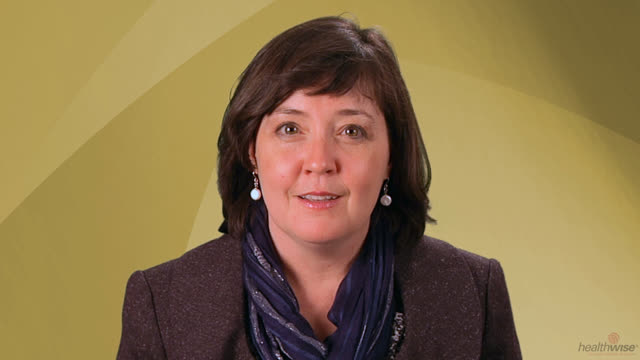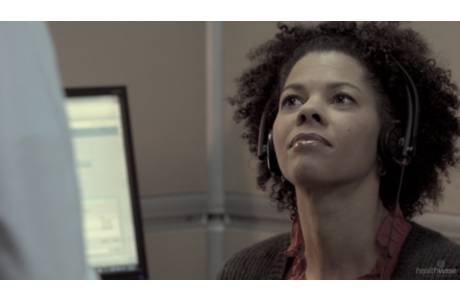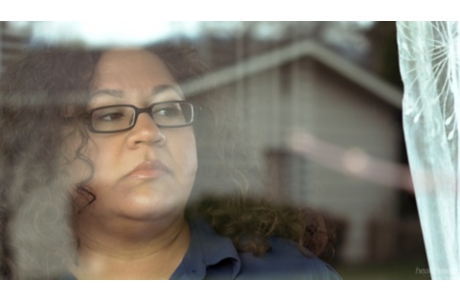Social Anxiety Disorder
Condition Basics
What is social anxiety disorder?
Social anxiety disorder (also called social phobia) is a condition in which a person is extremely anxious about what they will say or do in front of other people. This includes public speaking and day-to-day social situations. But it's more than just being shy or nervous before public speaking. The fear can start weeks or months before an event.
Some people fear only one or a few types of social situations. For other people, many situations cause stress. This problem affects your daily life. You may be so stressed or afraid that you avoid being in public, such as missing work and school.
What causes it?
Doctors don't know what causes social anxiety disorder. They think it may run in families. But they aren't sure if it's because of genetics or a response to a traumatic situation.
What are the symptoms?
Social anxiety disorder causes a fear of being judged or humiliated in public. But it's more than being nervous before public speaking. You may avoid being around other people. It can affect your daily life and activities, including work or school. People with social anxiety disorder usually have symptoms for around 6 months or longer.
How is it diagnosed?
To diagnose social anxiety disorder, your doctor will ask about your symptoms and past health. The doctor may ask other questions to see how you are doing emotionally. Blood or urine tests may also be done. They can rule out other medical conditions that can cause similar symptoms (such as hyperthyroidism).
How is social anxiety disorder treated?
Treatment of social anxiety disorder includes counseling and sometimes medicine. Whether you need medicine depends on how much the condition affects your daily life. If you already feel anxious around other people, it may be hard to ask for help. But treatment works for many people and can improve your life.
Health Tools
Health Tools help you make wise health decisions or take action to improve your health.
Symptoms
Social anxiety disorder causes a fear of being judged or humiliated in public. But it's more than just being shy or nervous before public speaking. It can affect your daily life and activities, including work or school. You may also avoid being around other people. It can cause both emotional and physical symptoms before or during a social event. Emotional symptoms include feeling extremely anxious, nervous, sad, or scared. The anxiety can cause physical symptoms. You may blush, sweat, or feel shaky. Your heart may beat faster than normal. And you may have a hard time focusing. People with social anxiety disorder usually have symptoms for around 6 months or longer.
Symptoms may differ in adults and children. Adults and teens with the disorder usually know that their fears of being publicly humiliated are extreme or excessive. But children who have this disorder may not.
Learn more
What Happens
If you have social anxiety disorder, even common social situations can cause overwhelming fear and anxiety. You may be afraid to eat in public, meet new people, use a public restroom, or speak in front of others. You may avoid being around other people. This can affect your daily activities, including work or school.
People with social anxiety disorder may underachieve at work or at school to avoid attention or working in a group. They tend to have few friendships. They may have trouble dating or forming relationships. In severe cases, they may have other conditions (such as depression or substance use disorder).
Learn more
Exams and Tests
To diagnose social anxiety disorder, your doctor will ask about your symptoms and past health. The doctor may ask other questions to see how you are doing emotionally. Blood or urine tests may also be done. They can rule out other medical conditions that can cause similar symptoms (such as hyperthyroidism).
Learn more
Treatment Overview
Treatment of social anxiety disorder includes counseling, such as cognitive behavioral therapy (CBT). CBT may use exposure therapy. Exposure therapy involves being guided by a professional counselor to imagine you are facing the feared situation. Treatment may also include taking medicine, such as antidepressants. Whether you need medicine depends on how much the condition affects your life.
You may not seek treatment because you feel anxious about talking to someone about it. Or you may think that you can work things out on your own. But treatment works for many people.
People who have social anxiety disorder often have depression too. They may also have substance use disorder. Your doctor may ask you questions to see if you might be using drugs or drinking too much. If so, your treatment will also need to address these conditions.
Learn more
Watch
Self-Care
Counseling and medicines are the most effective treatments for social anxiety disorder. But practicing a healthy lifestyle may also help reduce your anxiety.
- Get regular exercise.
Start slowly so that you don't overdo it. Build up your exercise program bit by bit. Aim for at least 2½ hours a week of moderate exercise.footnote 1
- Get enough sleep.
Try to go to bed at nearly the same time. And keep your room quiet and dark. This may reduce distractions and may help you get good sleep.
- Avoid foods and beverages that contain caffeine.
Foods with caffeine, such as energy drinks and coffee, may make you more anxious and cause sleep problems.
- Learn and do relaxation exercises.
These may include guided imagery and progressive muscle relaxation.
- Learn how to handle negative thoughts.
Positive thinking can change how you feel and help you prevent or control anxiety.
- Avoid using alcohol and drugs.
Some people use alcohol or drugs to try to gain confidence to face feared social situations. But using them can cause substance use disorder along with social anxiety disorder.
Learn more
Watch
Credits
Current as of: June 24, 2023
Author: Healthwise Staff
Clinical Review Board
All Healthwise education is reviewed by a team that includes physicians, nurses, advanced practitioners, registered dieticians, and other healthcare professionals.
Current as of: June 24, 2023
Author: Healthwise Staff
Clinical Review Board
All Healthwise education is reviewed by a team that includes physicians, nurses, advanced practitioners, registered dieticians, and other healthcare professionals.










